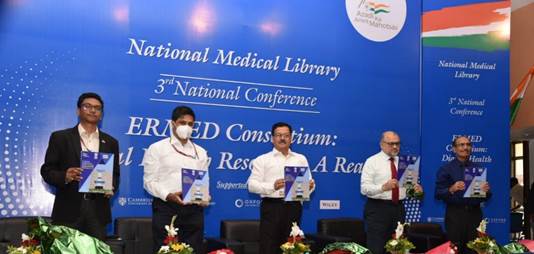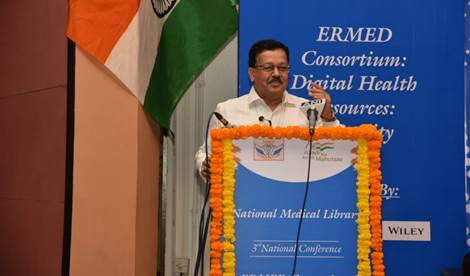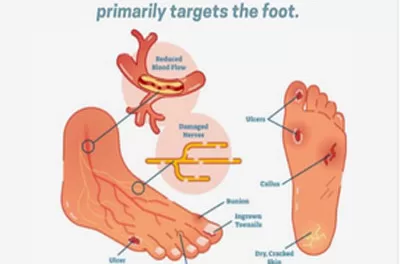Shri Rajesh Bhushan, Union Secretary for Health and Family Welfare inaugurated 3rd National Conference “ERMED Consortium: Digital Health Resources: A reality” in the presence of Dr. (Professor) Atul Goel, DGHS at National Medical Library, here today.
National Medical Library’s Electronic Resources in Medicine (NML-ERMED) Consortium is the flagship electronic resources consortium by the Directorate General of Health Services(DGHS) & Union Ministry of Health and Family Welfare, wherein access to 228 journals are being provided round the clock to 71 states and centrally funded Government Institutions including all All India Institute of Medical Science (AIIMS).

Shri Rajesh Bhushan congratulated the NML for their expansion efforts and pointed out that the overall library scenario has changed nationally and globally post-pandemic. He said that rapid transition has been taking place be it from print and manual learning resources to electronic forms. “But we must not lose sight of the bigger picture that India is perhaps one of the few countries in the world that is observing the significant expansion of medical institutions in recent times. Hence, we must be careful in adopting global technological practices and must take into account our local needs.”

While highlighting the presence of a vibrant research community in India and our technological prowess which needs to be further encouraged, the Union Health Secretary mentioned the CoWIN platform that has been able to robustly serve not just our citizens with more than 2 billion vaccine doses recorded digitally but has been hailed as a global best practice. He urged the stakeholders to come up with similar digital platforms and create homegrown best practices where Indian methods and Indian solutions dominate the digital spaces.
Shri Rajesh Bhushan reiterated the implications of pandemics on medical teaching and medical care. Citing examples of Electronic ICUs or tele-ICUs and Teleconsultations that has become commonplace now, he emphasized that the pandemic has provided the fillip to the ecosystem of digital medical care. He noted that the Government of India is expanding these services by taking technical advantage of the Internet and mobile technology penetration in the country. These avenues are being pushed forward at the ground level for ensuring accessibility, affordability, equity along with the quality of healthcare services. Building on this strong groundwork, libraries must also come up with innovative best practices so that it can help cater to the needs of our medical professionals, he highlighted.
The prime focus of ERMED is helping medical colleges to comply with NMC guidelines, standardize care across all clinicians, reduce variability in care, enable safe patient care, drive appropriate drug use and prescribing behavior, decrease medical errors, stop unnecessary diagnostic testing, shorten length-of-stay, lower mortality rates, exposure to the latest research, information development, scientific and technological progress. ERMED consortium would expand the research output and the ranking of the member institutions in this process. The government of India has provided the financial support required for access to electronic journals under the NML-ERMED consortium project. ERMED members have access to advanced clinical tools and resources published by well-known publishers for benefit of faculty members and students.
The official website of NML-ERMED(http://www.ermed.in/) and booklet were also launched at the event.
Dr. (Prof) Atul Goel, DGHS, Shri Ashish Srivastava, AS&FA, Ms. Hekali Zhimomi, JS, Dr.(Prof) B Srinivas, Director National Medical Library, Dr. (Prof) Anil Maniktala, DDG(P), DGHS, Dr. Rajiv Garg Professor of Excellence (POE)along with other experts and officials from Ministry were present at the event.











